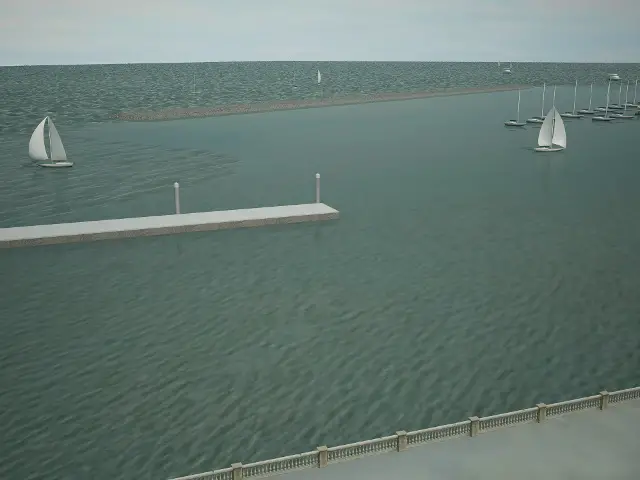This in from Louise on behalf of Cowes Harbour Commission. Ed
Cowes Harbour Commission (CHC) is pleased to report that completion on the 2014 phases of the Cowes breakwater construction programme is imminent with contractors Boskalis Westminster now finalising the reshaping of the 350 metre long breakwater core in advance of a winter settlement period.
Harbour Master at Cowes, Capt. Stuart McIntosh said:
“Progress on construction of the new detached breakwater has proceeded as planned and completion by Boskalis Westminster of the first six months of works is on schedule. CHC’s top priority is always safety and despite Cowes being a very busy harbour, the exclusion zone around the breakwater construction site has been successfully managed throughout the season.”
Paul Datson, Head of Capital and Coastal Projects at Boskalis Westminster, added:
“The execution of the project has taken place safely and is on schedule. We have successfully achieved our intermediate objectives this year to allow the breakwater construction to continue as planned. The settlement being observed is in line with our design and everything is on course for us to return in the spring to continue with the rock placement works.”
Recycled gravel from Southampton
Boskalis Westminster also carried out the recent capital dredge in Southampton Water, and after confirmation that the dredged gravel material met the specification required for the Cowes breakwater, the material was put to environmentally beneficial reuse in the building of the breakwater core at Cowes.
Following a review by Boskalis Westminster and the breakwater’s designers of data collected during an initial one month settlement period in September, including key data recovered from a pressure sensor, the planned reshaping of the gravel core commenced in mid-October.
Excess gravel that had originally been deposited along the slopes of the breakwater was used to reshape and raise the gravel core to around 4.6 metres above chart datum, thereby reducing the width of the gravel structure. There will, however, be some variance in crest height along the length of the breakwater as settlement of the core continues.
Time to allow gravel to settle
A consolidation process will take place over the autumn and winter of 2014-2015 to allow for settlement of the gravel core along the breakwater footprint and strength increase of the subsoil. Settlement beacons previously installed on the breakwater will remain in place for ongoing observation.
Monitoring of the breakwater gravel core will take place on a monthly basis over the winter period, more often in the case of any severe weather conditions. It should be noted that the breakwater will resemble a gravel spit during the winter of 2014-15 and will only begin to take its final finished appearance during the 2015 works.
Reshaping in May 2015
At the point of mobilisation in May 2015, the breakwater gravel core will be reshaped before the start of rock transport and placement in June. At least 40,000 tonnes of rock armour will be installed over the gravel core and this operation is estimated to take 12 weeks to complete. Navigation aids, fixed beacons and buoys will then be put in place before a monitoring and handover period next autumn.
The result in October 2015 will be a 350 metre long, detached rock armoured breakwater in Cowes Harbour that protects existing homes, businesses and harbour users and that enables the regeneration project for East Cowes, and the jobs that will bring, to progress.





